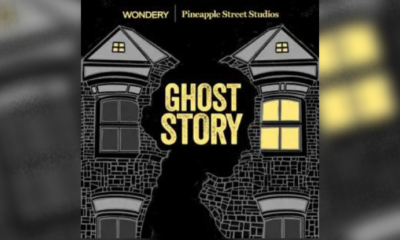EDITORIAL
Crimes of the Ear: The rise and history of UK true crime podcasting
From smoky pubs whispering about Jack the Ripper to tabloid front pages splashed with courtroom drama, Britain has always had a macabre fascination with crime. But in the last decade, that fascination has taken on a new form: the true crime podcast. Blending investigative journalism with binge-worthy storytelling, UK true crime podcasts have evolved from fringe interest to a dominant genre in British audio. Here’s how it all began – and where it might be going.
Before the Boom: Early Whispers
While the true crime podcast genre was ignited globally by the explosive success of Serial in 2014, the UK had been cultivating its own dark storytelling tradition well before that. British listeners had long been fans of crime documentaries on radio and TV – think Crimewatch, Panorama specials, and even BBC Radio 4’s File on 4, which occasionally explored criminal investigations in long-form audio.
But podcasting brought something new: intimacy, depth, and a DIY spirit. Independent creators, journalists, and hobbyists began experimenting with the format, often covering cold cases, unsolved murders, or historic crimes overlooked by mainstream media.
The Breakout: Untold and The Missing Cryptoqueen
The UK’s true crime podcast scene truly hit its stride in the late 2010s, with the release of some genre-defining shows.
Untold: The Daniel Morgan Murder, released by Global and hosted by investigative journalist Peter Jukes, was a landmark. It tackled one of Britain’s most scandalous unsolved murders and alleged police corruption, blending meticulous journalism with gripping storytelling. It not only reopened public interest in the case – it arguably helped move it closer to resolution.
Then came The Missing Cryptoqueen, a BBC Sounds production that followed journalist Jamie Bartlett as he unraveled the story of Dr. Ruja Ignatova, the self-styled crypto mogul who disappeared with billions. It wasn’t just a story about fraud; it was about trust, digital evangelism, and power. It showed that true crime podcasts could tackle modern-day mysteries just as compellingly as historic ones.
The Indie Explosion
At the same time, a wave of independent true crime podcasts was gaining traction. Shows like They Walk Among Us began quietly, with host Benjamin Fitton covering British crimes with a solemn tone and straightforward delivery. What started as a passion project grew into one of the UK’s most popular and respected true crime podcasts, winning awards and spawning spin-offs.
Meanwhile, other creators brought a more casual, conversational style to the genre. RedHanded, hosted by Suruthi Bala and Hannah Maguire, blended detailed research with humour and sharp commentary. The duo’s chemistry and commitment to nuance helped them stand out – and build a fiercely loyal fanbase.
A Matter of Ethics
As the genre matured, so did the conversation around ethics. With crime comes victims, and with popularity comes scrutiny. Many UK podcasters began reflecting on how to responsibly tell these stories. Some, like Unheard: The Fred & Rose West Tapes, took a journalistic approach, using archival audio and expert interviews to provide context and avoid sensationalism.
Others turned their attention to underrepresented stories, shining a light on systemic injustice. Who Killed CJ Davis?, In the Footsteps of Killers, and Catch Me If You Can are part of a growing wave of UK podcasts that blend investigative rigour with social critique, challenging assumptions and encouraging change.
Mainstream Meets Murder
As true crime became one of the UK’s most listened-to genres, major players jumped in. The BBC, Global, Amazon, and Spotify all invested in true crime originals. Shows like Bad People and Obsessed With… (which often companion popular crime dramas) helped bring true crime into the podcasting mainstream.
The result is a landscape that ranges from DIY to big-budget, from the grotesque to the political, from the historical to the ongoing. UK podcasting now boasts a rich and varied true crime ecosystem – one that rivals its US counterpart in quality, depth, and originality.
What’s Next?
Looking ahead, the genre faces both opportunity and responsibility. Audiences are growing more sophisticated and more discerning. There’s demand for stories that go beyond “whodunnit” to ask “why” and “what now?”. Podcasts that explore criminal justice reform, community impact, and survivor voices are on the rise.
With new technologies – such as immersive audio and AI-assisted research – on the horizon, the tools for storytelling will only improve. But at the heart of it all will remain the same enduring British curiosity: the need to understand what drives people to the edge, and what their stories tell us about ourselves.

















